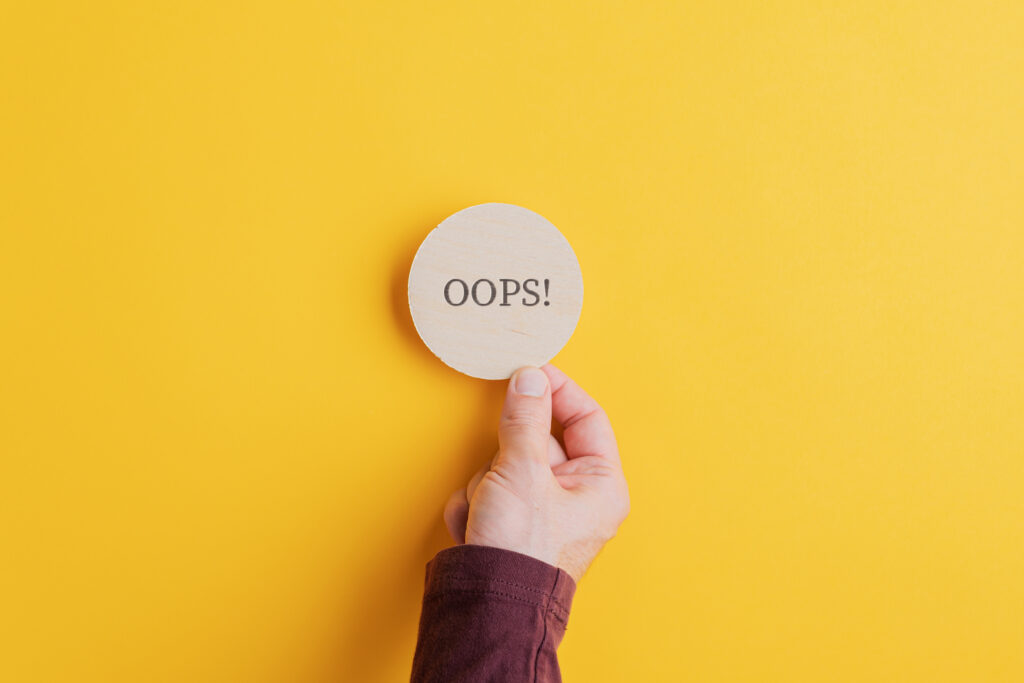A simple apology at an accident scene feels natural when tensions run high and people are shaken. However, those two words can transform into an admission of fault that damages your insurance claim and legal position. Even when you mean to express sympathy or concern for someone’s well-being, saying “I’m sorry” creates evidence that insurance companies and opposing lawyers can use against you in settlement negotiations or court.
At Dominguez Law, we have seen countless cases where clients harmed their claims by apologizing at the scene. Our firm has secured over $30 million in settlements and verdicts with a 99% success rate across more than 300 cases. We know how insurance adjusters interpret every statement made after an accident, and we can help protect your rights after a collision.
How Apologies Become Admissions of Fault
Insurance companies and defense attorneys treat apologies as evidence of responsibility for an accident. When you say “I’m sorry” at the scene, the other driver, witnesses, or responding officers may note this statement in their accounts. Insurance adjusters reviewing the case often interpret any apology as acknowledgment that you caused or contributed to the collision.
New Mexico follows a comparative fault system, which means your compensation reduces based on your percentage of fault. If your apology helps establish even partial liability, you may lose thousands of dollars in damages. For example, if you are found 30 percent at fault for an accident with $100,000 in damages, your recovery drops to $70,000.
The legal standard does not care about your intent when apologizing. Courts and insurance companies focus on what you said, not what you meant. Understanding how comparative negligence works can help you see why protecting your rights starts with what you say immediately after a crash.
What Insurance Companies Do With Your Statements
Insurance adjusters look for any statement they can use to reduce or deny your claim. They review police reports, interview witnesses, and examine recorded statements for inconsistencies or admissions. An apology at the scene gives them ammunition to argue that you accepted responsibility for the accident.
Adjusters often call accident victims within hours of a collision, hoping to obtain recorded statements before people understand the full extent of their injuries or legal situation. They may ask leading questions designed to get you to repeat your apology or elaborate on it. These tactics help insurance companies minimize payouts.
Even if the accident was clearly not your fault, your apology can complicate the claims process. Defense attorneys may argue your apology shows uncertainty about what happened. Knowing how to communicate with insurance companies protects you from these strategies that aim to devalue your claim.
What You Should Say Instead
You can show concern for others without admitting fault. Ask if anyone needs medical help, and call 911 if injuries occurred. Exchange insurance information and take photos of the scene, vehicle damage, and any visible injuries. These actions demonstrate responsibility without creating legal problems.
Stick to factual observations when speaking with anyone at the scene. You might say, “Are you okay?” or “Let me call for help.” Avoid making statements about who caused the accident or speculating about what happened. If the other driver seems upset or accuses you of causing the collision, stay calm and avoid arguing.
When police arrive, provide factual answers to their questions without offering opinions about fault. Officers will investigate and make their own determinations. Why you should not agree to any terms at the accident scene explains why limiting your statements protects your legal options. You have no obligation to discuss the accident details with the other driver or their insurance company at the scene.
How to Handle Insurance Company Calls
Insurance adjusters often contact accident victims shortly after a collision, sometimes within the same day. They may seem friendly and helpful, but their goal is to protect their company’s financial interests. You have the right to decline giving a recorded statement or to delay the conversation until you consult with a lawyer.
If you must speak with an insurance adjuster before getting legal advice, keep your responses brief and factual. Provide your basic contact information and confirm that an accident occurred, but avoid discussing details about how it happened, injuries you suffered, or who was at fault. Say you need time to fully assess the situation and your condition.
Never repeat any apologies or statements you made at the scene. Insurance adjusters may try to get you to elaborate on earlier comments. Understanding your rights during the claims process helps you avoid saying things that damage your case. Many accident victims benefit from having a lawyer handle all communications with insurance companies.
Get Help From Dominguez Law After Your Accident
Your words immediately following an accident can affect your compensation for years to come. As a fifth-generation New Mexican, attorney Paul M. Dominguez understands how challenging the aftermath of a collision can be. We approach every case with the mindset that it may go to trial, preparing thoroughly and advocating with determination for fair settlements.
We offer free consultations and take calls on weekends because you deserve accessible guidance when you need it most. Whether you have already given a statement that concerns you or you want advice before dealing with insurance companies, we can evaluate your situation and protect your rights. Contact us today to discuss your accident and learn how we can help you pursue the compensation you deserve.


